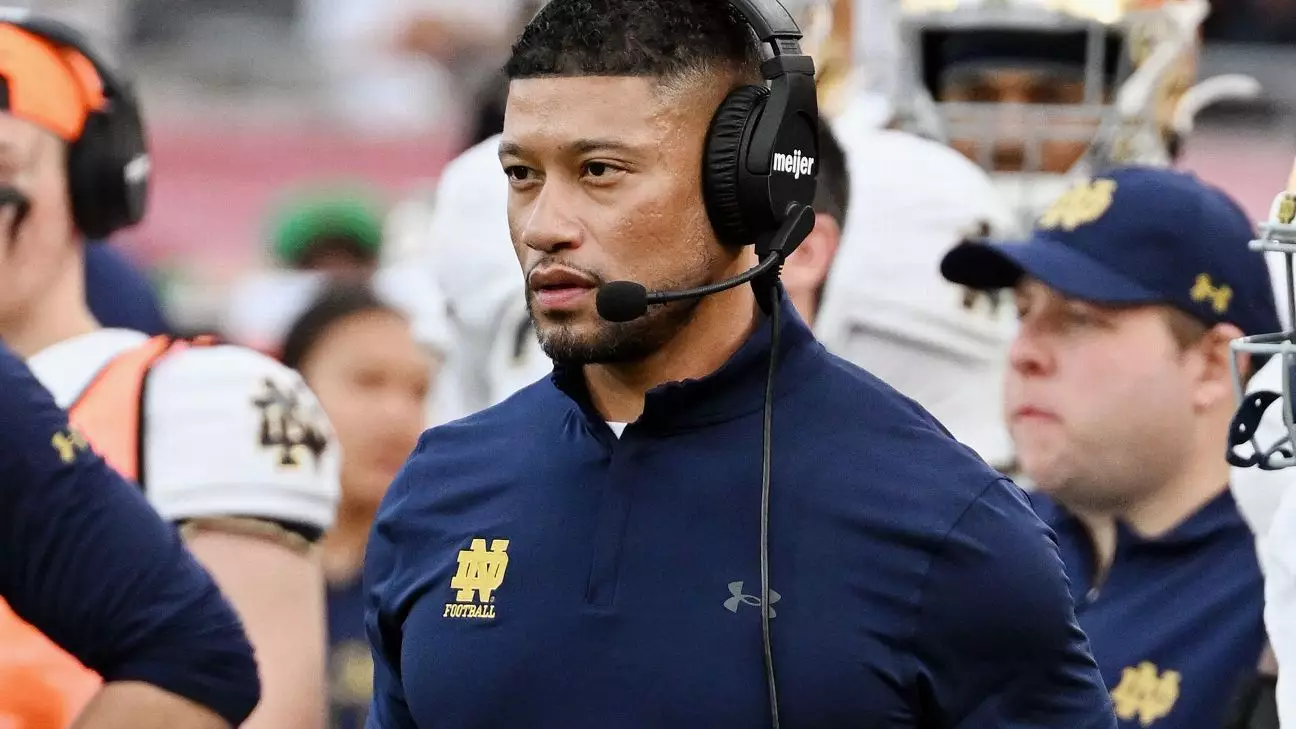In the realm of college football, few events hold as much weight as the Orange Bowl, specifically this year’s College Football Playoff Semifinal, which pits Notre Dame’s Marcus Freeman against Penn State’s James Franklin. This matchup is not just a contest of athletic prowess but a landmark moment in sports history. The winner will etch their name as the first Black head coach to lead a team to the national championship game—an achievement steeped in the legacy of representation, opportunity, and progress.
Both Freeman and Franklin were keenly aware of the historical implications of their game as they addressed the media leading up to Thursday’s event. Franklin, reflecting on memories from Super Bowl XLI where Tony Dungy and Lovie Smith became the first African American head coaches to face off, expressed a profound understanding of this transformative moment. He recalled his time as an offensive coordinator at Kansas State and reflected on the significance of that Super Bowl in challenging the status quo in coaching dynamics across various levels of football.
Franklin’s assertion that the visibility and success of Black head coaches can inspire a new generation cannot be overstated. The ratio of Black head coaches in college football has improved from six to 16 in the 134 FBS programs, a shift that Franklin identifies as progress, albeit slow. This upward trend, he believes, has profound implications for the fabric of college athletics, signaling a gradual dismantling of barriers that have historically limited access and opportunity for minority coaches.
Despite these advancements, Franklin remains measured in his optimism. He acknowledges that for many, the incremental increase might seem disappointing. Nonetheless, he emphasizes the importance of recognizing the strides made, urging that every step counts. As he highlighted, “Does this create opportunities for more guys to get in front of athletic directors? Does this create opportunities for search firms?” These questions encapsulate the ongoing struggle for equal representation in the coaching arena.
Freeman, too, exemplifies this growing visibility and understands the duality of his identity. He identifies as a Black and half-Korean man, reflecting on how he inhabits a space that recognizes the intersection of race and representation. His sentiment, captured in the phrase “Don’t put a ceiling on what you can be and what you can do,” serves as both a personal mantra and a rallying cry for aspiring coaches watching him navigate this historic moment.
Such milestones are not mere footnotes; they resonate deeply within the context of mentorship and representation. Both coaches recognize their roles as figures who not only elevate their teams but also pave pathways for future generations of minority coaches. “If you want to impact the young people in this profession, you probably should do things to help them,” Freeman stated, emphasizing that representation must also translate into actionable change beyond the football field.
The opportunity to inspire young coaches extends beyond mere presence; it involves establishing systems and initiatives aimed at fostering diverse talent. The hope is that the visibility of Black coaches in high-profile positions will resonate beyond the sport, influencing various sectors where underrepresentation has long remained a challenge.
Franklin, expressing admiration for the stage on which he and Freeman find themselves positioned, understands that this rivalry extends beyond competition—it’s a shared journey toward equality and opportunity. “I’m honored to be able to compete against Notre Dame,” he mentioned, signifying that the essence of this contest lies not just in winning, but also in representation and the upliftment of many.
This narrative serves as a reminder that each game is influenced by a history too complex to ignore. Whether it is the competition on the field or the fight for equality off it, the implications of their achievements will ripple through the annals of college football, crafting stories of hope, resilience, and empowerment for generations to come. The Orange Bowl and its participants hold the potential to inspire change far beyond the confines of the gridiron.


Leave a Reply